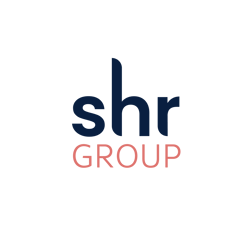Contributed by Estella Hale, V.P. of Product, SHR

If you get the feeling there's been a lot of talk lately surrounding the future of the CRS, you're not imagining things. Whether it's a comparison with channel managers, or simply a renewed interest in optimization, the discussion has heated up. This is not surprising. It's actually healthy, especially for a technology that is considered by many to be the heart of most hotel functions. It's also not surprising for me to say that SHR believes in an increasingly strong role for the CRS. After all, it is the core of our business. But this belief is not based on wishful thinking or promotion of some tech sector agenda. It's based on fact; what the industry has lived through, what the current climate is telling us, and what the future markers are pointing toward. The conversation around the future of the CRS is rich, and includes many more voices than just our own. Property Management Systems (PMS), Revenue Management Systems (RMS), Customer Relationship Management (CRM), and many more all have a stake in the future of the CRS.
Recently, I was honored to be on The Future of Central Reservation Systems panel at HEDNA in Austin, Texas. Among the myriad opinions and viewpoints, one thing everyone agreed on was this; that the future of the CRS will be a decidedly guest-centric system that delivers needed information for any transaction, which means moving profile management to the center of how we respond to those transactions. Also, recently, h2c presented their findings from their global hotel CRS study in a research paper entitled, The State of Central Reservations Systems: Key Hotel Requirements Driving the CRS Evolution. Interestingly, their results, as discussed here, echoed the consensus at HEDNA, helping to solidify what we at SHR already believe are current and evolving truths about the CRS's future role.
Driving Loyalty and Revenue
SHR is addressing the CRS path of personalization to drive loyalty and revenue within the booking process by looking at the sources that influence personalization, from predictive mobile apps to conversational marketing. What we see are two main sections. The further we go into personalization-which is what guests want-and then how much information on a guest profile we hold. Together, these will determine how guest-centric our system can become to power distribution.
Considering these two areas, we see the future of electronic distribution requiring the current role of the CRS to expand to tightly integrate other key pieces of the current eco-system that, today, function independently, such as CRM and RMS. To handle such a shift in the eco-system, we foresee a move for Guest Profile Management (GPM) into the CRS, because the more data the system collects and can draw from and work with, the better the CRS recommendations will be, and the better-off your guests will be.
Profile Shift to CRS
This is what we've been discussing, and the h2c report backs it up even more solidly. Nearly two out of three hotel chains surveyed in the report said they expect that profile management via the PMS will shift to another system, while some chains expected the CRS to pick up the entire GPM role moving forward.
The CRS would seem to be the natural place for GPM. Today, we do availability requests and responses on a when/how long/how many guest basis. Then we respond with what's available. But we really need to present our responses in a way that is more valuable for that particular guest. We need to leverage intelligence for known profiles, and shift the power of the guest profile to the CRS, which is a more powerful location for the hotel and in turn, will provide a more powerful experience for the guest.
Simplified Payments and Blockchain
Payments are another area where I feel things will definitely improve. One-click bookings, like the Amazon model, are achievable. We view the use of blockchain technology as separate from just crypto-currencies and payments. This discussion is just beginning, of course, but there should be interesting things coming in that space that have to do with the storage and exchange of information. With the partnerships and programs we foresee in place, we can begin to make this an integral part of our system. But, it's important to keep in mind that this is heavily intertwined with the management of profiles.
Boosting Online Direct Bookings
Increasing the conversion rate on direct channels is another aspect of the CRS landscape that was a hot topic at HEDNA. As a consumer, natural language search that brings me what I need when I need it is important, i.e. "Room with balcony" or "Room with ocean view." This also includes a situation where, for instance, the booking engine could take into account market conditions, hotel pace reports, and guest profiles all at once before it responds. But in order to provide an enriched response to such requests, the single most important enhancement needed is, as previously discussed, an integrated platform, where data and delivery of insights becomes a part of the business model.
H2c reported that though online direct bookings directly affect a hotel's profitability, most chains still lack the technology and innovation speed of OTAs, resulting in low direct booking shares. Not surprisingly, the report goes on, for all chains surveyed, OTA bookings accounted for nearly three-quarters of total online revenues.
As creators of the online booking channel, we need to look at the predictive apps because they can reveal intuitive information that we can and should use. On the day of check-in, the CRS needs to enable the hotel to send customized messages. Don't ever make the guest search for information. Give them the info they need at one time, and in one place.
Real-Time Offers for an Audience of One
Hoteliers reported to h2c that CRS system agility is a key requirement, and that CRS integration for guest and content management remains in great demand. Again, I feel this points to the need for integration that we have been discussing so far. H2c also reported that hoteliers expect the booking engine and other point-of-sale modules to feature comprehensive CRM functionalities. Let's translate all of this into real life. Consider the following scenario.
You're in Vegas and have been having a great time around the clock, so you'll probably be happy to pay extra for late check-out. Or on a business trip, you would care more about getting your breakfast included. This means that a lot of the items that today live in the CRM will move into the CRS and the guest's booking path. Right now, guests can see somewhat relevant offers online, but they cannot see what is relevant specifically to them. That is the difference.
Therefore, integration of content and the CRM allows customized real-time offers to become real to a particular prospective guest, whether to our audience of one person, or an audience of one group. To get the best data, you need the CRM. For the CRS to start providing intelligent responses, it needs more than general anonymous data. Amazon doesn't ask you what dog food you want every time. They know what dog food you want-and they remember.
The Demand for Customized Solutions
Hoteliers surveyed by h2c were also asked to rank the importance of certain decision criteria for acquiring a new distribution solution, i.e. a new CRS; 58% rated vendor innovation and enhanced technology as most important; 32% rated influencing the vendor's product developments as being important; and 58% rated support and consulting services as split equally between most and very important. Surprisingly to everyone, new system cost was rated least important by 69% of those surveyed. When study stats like this show that having a voice in the CRS conversation and good support override cost considerations, you and I know we need to listen to what those stats are saying.
The Bottom Line
Considering all that I have revealed and discussed here, it comes down to this for us at SHR. We believe that electronic distribution will see the current role of the CRS expanding into tightly integrated key pieces. The components that SHR believes are key to making the vision of an integrated revenue generation system a reality are what today's hotels obtain from Central Reservations, Revenue Management, and the CRM. Only by integrating these data streams will hotels be able to truly influence, track, and continually gain insights from the entire guest journey. The overarching goal will be to price and deliver offers to an audience of one, creating specific offers for a loyal guest. Because the more data the system collects and can work with, the better the recommendations and decisions will be, the better the choices for the guest will be, and ultimately, the better off the hotels will be. SHR is committed to pursuing this vision, making significant investments to put the initial pieces together, and expects to be a pioneer in this transformation.


